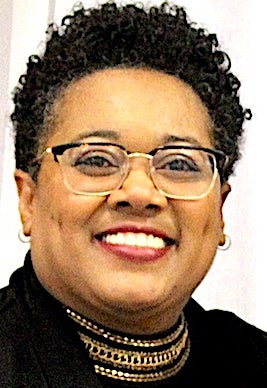Faison completes doctoral study on Riverview High
Virginia State University Professor and Southampton County native Dr. Latorial D. Faison recently completed her doctoral research study on Riverview High School, the historic Black high school that existed in Courtland.
A news release noted that Faison, who presently resides in Chesterfield County, was a 1991 graduate of Southampton High School, a 1995 graduate of the University of Virginia and a 1997 graduate of Virginia Tech. This past May, she graduated with a doctoral degree in education from Virginia State University.
Faison’s dissertation, “The Missed Education of the Negro: An Examination of the Black Segregated Education Experience in Southampton County, Virginia, 1950-1970,” takes readers, scholars and students back in time to explore the nuances of Black segregated education during the Jim Crow Era in Southampton County.
Faison’s qualitative study examined the mid-20th century Black segregated education experience in rural Southampton County from 1950-70 to explore student perceptions of the experience. The scholar holds that graduates of numerous Black schools in the segregated South prove that Black educators defied systemic odds to nurture, cultivate and commission Black achievement and excellence in students of color during one of the darkest eras in history.
The purpose of Faison’s research was to ascertain resolutions to three critical issues in public schools: widening achievement gaps for African American students, a lack of culturally relevant teaching, and the absence of essential links and connections to the African American community. Theories that frame Faison’s research are Identity Development Theory, the Theory of Eurocentricity, and Critical Race Theory.
These theoretical approaches assist in revisiting segregated education history to understand the dynamics of existing educational disparities, inform practice and promote more successful outcomes for African American students. Sixteen in-depth participant interviews were conducted by Faison to explore perceptions of the Black segregated education experience in rural Southampton County.
Through phenomenology, critical ethnography, narrative portraiture and poetic analysis, the researcher highlights the nuances of a unique educational experience and reviews and analyzes data from a cultural aspect. Faison’s research addresses the academic challenges of educating African Americans with regard to history, race and culture. It also supports the hypothesis that academic, social and professional success and achievement are more likely outcomes when minority students, particularly African American students, have more equitable, inclusive and culturally relevant educational experiences.


